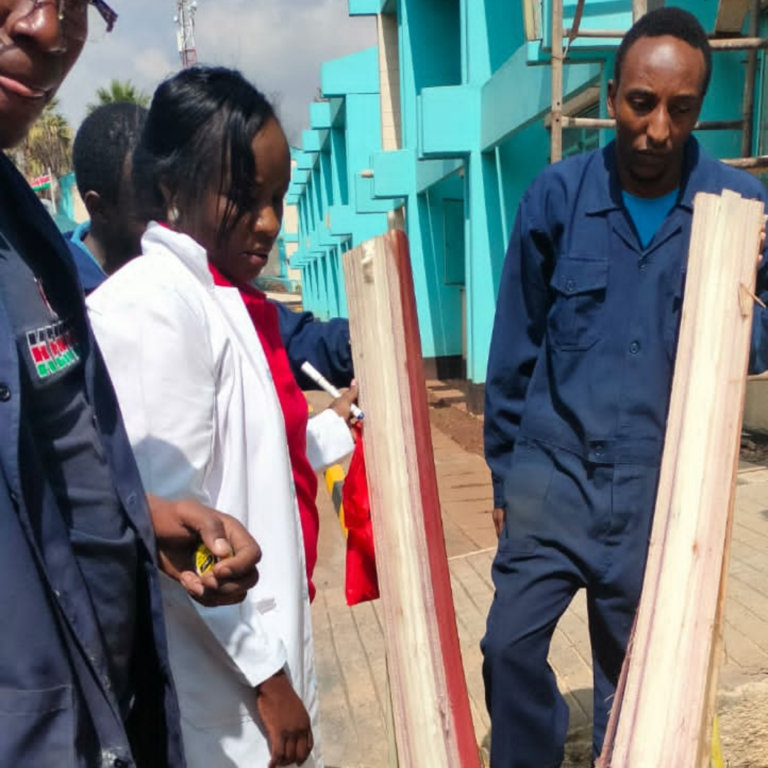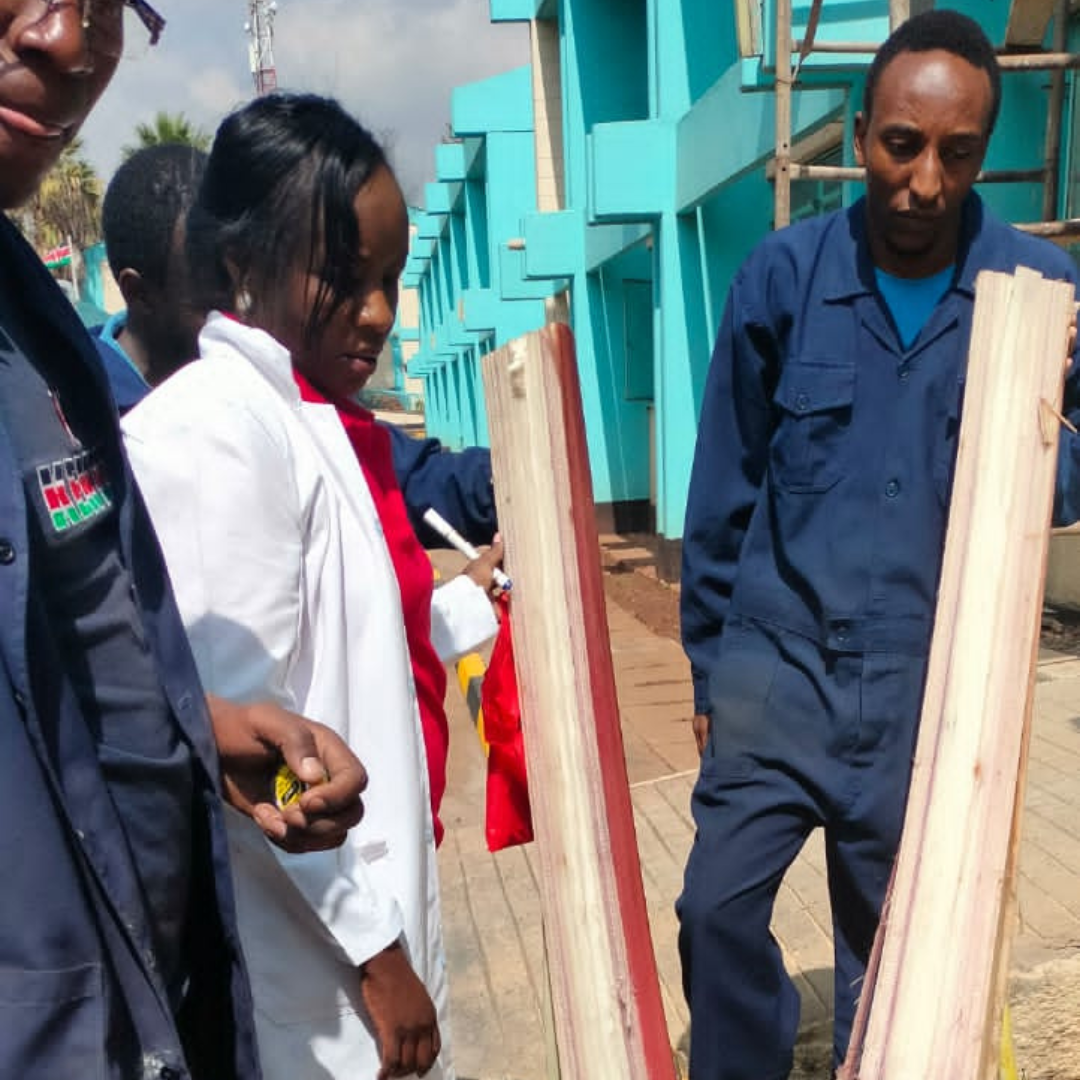

NAIROBI, Nov 16 (IPS) – “Going inexperienced” appears to be Dr Jacquline Kisato’s favourite slogan as she passionately explains her eco-friendly sanitary napkins, a product she expects will assist empower ladies and younger women , and in addition permit farmers to generate income.
Kisato, a lecturer in Trend Design and Advertising at Kenyatta College (KU), is at present engaged on a mission to develop inexpensive and eco-friendly sanitary napkins, whereas additionally searching for options for sustainable packaging supplies.
Kisato’s enterprise began out as a manner to assist communities acquire a supply of employment via the commercialization of banana stems, which had been thought-about a ineffective product by farmers and had been typically left to rot on farms.
After the Kenyan authorities carried out a ban on the usage of plastic baggage in 2018, there was an instantaneous want to seek out alternate options.
Plastic baggage are a necessity at grocery shops and quick meals distributors, permitting prospects to simply take their items dwelling. Nevertheless, regardless of their benefits, their unfavourable influence on the atmosphere can’t be ignored.
“I began taking a look at this mission from an entrepreneurial perspective, understanding commercialize banana stem fiber. The federal government had simply banned the usage of single-use plastic baggage, and market distributors wanted alternate options to serve their prospects,” Kisato informed IPS.
“Improperly disposed sanitary napkins are additionally a part of the contamination drawback as a result of they’re product of plastic,” she added.
Nevertheless, in keeping with Muli, empowering ladies and younger women via inexpensive sanitary napkins has at all times been on her thoughts after noticing the struggles that school-going women undergo.
“In the future, as I used to be strolling down the hallway, a scholar on campus stopped me and requested me if I might get her a pack of tampons. This incident shocked me as a result of for a very long time, I I at all times thought that ‘interval poverty’ solely occurred to highschool college students,” Kisato stated.
Kisato and her analysis group interviewed 400 highschool women from Gatondi, Kibera and Kawangwere and located that greater than 50% of ladies in these low-income areas can not afford sanitary napkins even at dwelling.
This made Trainer Tang very uncomfortable as a result of she felt that one thing wanted to be finished about it.
Whereas researching alternate options to plastic baggage, she realized she might resolve two issues without delay.
Subsequently, Kisato utilized for the Nationwide Analysis Fund (NRF) in 2018 with the intention of growing environmentally pleasant plastic baggage and sanitary napkins. Her want got here true when NRF awarded Kenyatta College 9 million Kenyan shillings (roughly $61,623) in 2020, and he or she served because the mission’s principal investigator.
Her group consists of teachers from varied departments and establishments, together with Ph.D. and grasp’s college students, every of whom performs an essential function within the implementation of this system.
“I lead a group of engineers on the Kenya Industrial Analysis and Growth Institute (KIRDI) who’re tasked with reverse engineering machines that may extract fibers from banana stems and use them to make eco-friendly packaging and sanitary napkins,” she explains . “I even have researchers from Moi College who work on changing the extracted fibers into smooth supplies to be used.”
Kisato’s purpose was to provide high-quality sanitary napkins that might compete with current merchandise available on the market whereas nonetheless being environmentally pleasant, a indisputable fact that led her to hunt out Edwin Madivoli, a lecturer in chemistry at Jomo Kenyatta College of Agriculture and Science ) experience (JKUAT).
In response to Kisato, towels available on the market include an ingredient referred to as hydrogel that permits them to retain liquid for longer, and are lined with plastic to forestall leaks. Our intention was to copy the identical materials, however utilizing bioplastic supplies that, in contrast to the common plastics getting used, are biodegradable.
Kisato’s analysis additionally discovered that Africans use sanitary pads for longer on common than ladies and women in developed nations, placing them in danger for bacterial infections. This is because of restricted entry and affordability in Africa.
“The beneficial period of utilizing sanitary pads is about three hours, which suggests altering them a minimum of thrice a day to keep away from any threat of an infection. Nevertheless, as a consequence of poverty, this isn’t the case for a lot of African women,” Kisato defined to IPS.
“We consider that including antimicrobial properties to our product will make it pretty much as good as, and even higher than, merchandise available on the market,” Kisato stated.
The analysis group additionally discovered that there are numerous myths about menstruation amongst younger women, a indisputable fact that results in lots of stigma and makes it troublesome for them to know use tampons appropriately.
Some noteworthy ideas women speak to one another about menstrual move embrace:
- It is a curse from God
- Menstruating women are thought-about soiled and impure
- Their faces will flip pale from blood loss
“These beliefs must be dispelled by encouraging dad and mom and governments to brazenly speak to younger women about menstruation,” Muli stated.
Madivoli’s chemistry experience is useful through the second part of the programme, and the Analysis Scholarship and Innovation Fund (RSIF) is happy to offer Kisato with an extra Ksh9 million (roughly US$59,000) to proceed what she has began work.
“My function is to make sure that our sanitary napkins are of the identical high quality as these available on the market whereas remaining environmentally pleasant, which is the primary agenda of all the mission,” Madivoli informed IPS.
“I used to be tasked with growing hydrogels, producing bioplastics, and discovering a solution to incorporate antimicrobial properties into our merchandise to guard customers from potential infections,” he stated.
JKUAT obtained a grant of Ksh.800,000 (roughly US$5,477) from the Kenya Nationwide Innovation Company (KENIA) to additional help Madivoli in conducting this analysis.
Madivoli added: “It’s well-known that when banana stems are dried on farms, they produce massive quantities of methane, a dangerous greenhouse fuel that contributes to the local weather change points we’re grappling with.” Subsequently, different makes use of of the stems are restricted. the greenhouse impact within the environment. “
Madivoli stated most banana farmers typically have no idea what to do with the stems after harvesting and this mission gives them with a solution to earn further earnings as they appear to purchase stems from them at Ksh35 per stem. .
“This mission is not going to solely be environmentally pleasant, however may also create employment alternatives for many who go to the farms to chop the stems, whereas additionally discovering a use for biomass that farmers think about ineffective,” he concluded.
As soon as up and operating, they count on to buy banana stems from counties comparable to Kisii, Muranga, Embu, Meru and elements of western Kenya.
Stephany Musombi is one in all Kisato’s college students specializing in textiles, and her function within the mission is to offer high-quality packaging supplies.
“Along with banana fiber, I’m additionally experimenting with different biomass comparable to pineapple and seaweed,” Musombi informed IPS. If I can discover a manner to do that, this mission will open up a marketplace for seaweed and bromeliad biomass.
Kisato’s plan could not come at a greater time, with the worldwide group working collectively to advertise inexperienced options to assist mitigate local weather change. Kenya additionally hosted a local weather summit on September 4, 2023, attracting leaders from throughout Africa.
Kenyan President William Ruto drove a small electrical automotive to the Kenyatta Worldwide Convention Heart (KICC), the place he challenged African leaders and innovators to seek out sustainable options for his or her each day actions Options that assist them cut back carbon emissions on the continent and globally.
“Africa can meet all its vitality wants from renewable sources. The continent has ample potential to turn into absolutely self-sufficient utilizing wind, photo voltaic, geothermal, sustainable biomass and hydropower. Africa can turn into a hub for inexperienced trade, serving to different areas in A internet zero technique by 2050,” Ruto stated on the summit.
Kisato expects her product to be accessible available on the market later this 12 months, and he or she plans to make it inexpensive for everybody. Her intention is to work with start-ups or established corporations dealing in toiletries.
“The most affordable hygiene equipment available on the market prices KES 140. We count on our value to be as little as KES 100, Kisato,” concluded.
Kenyatta College Vice-Chancellor Paul Wainaina applauded the plan, saying it will allow the nation to satisfy its industrial wants whereas defending the atmosphere.
IPS United Nations Workplace Report
Follow @IPSNewsUNBureau
Observe IPS Information United Nations Bureau on Instagram
© Inter Press Service (2023) — All rights reservedUnique supply: Inter Press Service